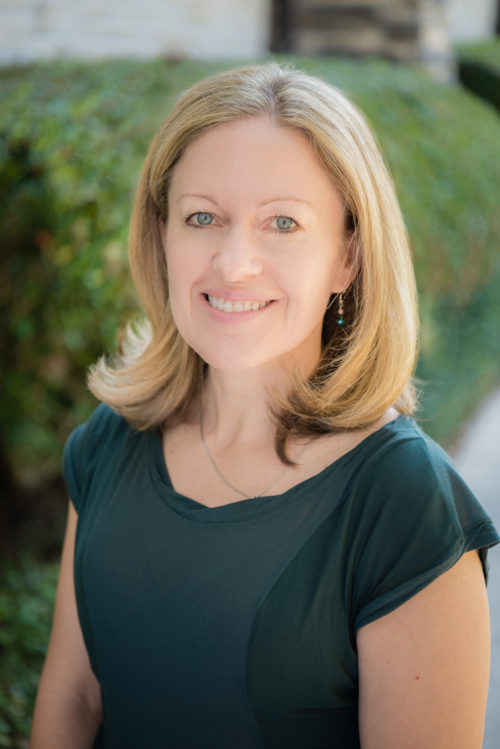
My daughter, Isabelle Dolores Anne, was born at 28 weeks on June 8th, 2004.
I had picked an early morning midwife appointment so I could dash to the office immediately afterwards.
With my mind very much on work, I casually mentioned to the midwife that I felt small for my dates. My comments set alarm bells ringing, as she started asking me how much movement I felt and how often. Being my first pregnancy and having nothing to compare it to, I couldn’t answer.
The day passed by with dizzying speed with a flurry of sonographers, OBGYNs, maternal fetal specialists and finally neonatologists visiting me in succession. A quick text to my husband telling him not to worry turned into a teary request for him to come to the hospital as soon as he could. I had been told our baby was small for her dates, there were placental insufficiencies and they had concerns over the development of her organs. Eleven hours after checking in for my appointment, I was being prepped for a C-section.
We didn’t know whether we were having a boy or a girl, so during the procedure, my husband and I distracted each other by discussing the name we would give to either our son or daughter. He stroked my hair and the anesthesiologist’s quiet, calm voice helped reassure me throughout. The casual way the medical team in the operating room talked to each other, along with a local radio station playing music in the background, calmed me down somewhat, but I was terrified. I had never been in hospital. I felt like I was having an out of body experience.
Suddenly we heard a faint cry, and I gasped when we were shown the tiniest head I had ever seen. We were told we had a daughter, she was then whisked out of my sight. My husband and I smiled at each other with tears in our eyes, confirming what our daughter’s name would be: Isabelle.
It was over 12 hours before I was taken to the NICU and saw her again. I did not even know what a NICU was. It was to be my home for the next 45 days. 45 days of learning, loving and hope, followed by doubt and worry, then despair, disbelief and heartbreak. Time slows down when you sit in a small room being told your baby will not live. Life becomes immeasurably still as you say the words out loud, when you communicate this surreal message to family so they can come and say goodbye.
I am certain physical pain follows any type of loss. Not knowing which way to turn and learning how to live in a world that, in an instant, has lost all meaning and joy. I was haunted by the final days of Isabelle’s life, wanting her pain to end, but not wanting mine to begin.
I knew early on that part of my healing process would be to get all the way through a pregnancy and have another baby. Five months after we lost Isabelle, I was pregnant again. Hyper-focused on wanting a healthy pregnancy, I stopped working four months into the pregnancy. I took care of myself physically and mentally. The anticipation of a new baby helped us through the sad first year milestones and holidays.
At 28 weeks, and every week thereafter, I breathed a sigh of relief that I still held my rainbow baby inside me. At 37 weeks, my waters broke.
By the time Henry was born on August 7th, 2005, I was exhausted. But when he was placed in my arms, I felt the most powerful rush of love that I had ever experienced. I believed I was holding the most beautiful baby in the world. He was safe – and mine. I felt incredible guilt that I hadn’t experienced the same rush when I had first held Isabelle. I hated myself for not taking up every offer to hold her, as I had been too terrified of disturbing or hurting her. Free from wires, cables and beeping monitors, I wanted to look at and hold Henry around the clock. I was thankful he was a boy, so I would not compare him to his sister. I felt enormous sadness that he would not have a big sister.
Looking back, I know my fear of losing another child has shaped – and is shaping – the way I parent my children. I was afraid to bond with my second son, born in 2006, who ended up having heart surgery when he was five days old. My husband and I held each other in tears when we were told of his diagnosis 24 hours after he was born. We were automatons in the NICU. Bonding with him was kept ‘on hold’ until he was home with us, as we were too afraid to fully love him for fear of losing him as well. When our third son was born in 2008, after the perfect pregnancy and a textbook birth, I knew I had used up my mental reserves and resilience and could not go through with another pregnancy.
For many years I struggled with anxiety, depression and PTSD, not recognizing what exactly these emotions were. I hated myself for not being able to cope with three young children, for not being able ‘to get over it’ and see the positives in my life. I felt guilty that I wasn’t doing enough to remember Isabelle. I had regrets about not having done enough for her while she was alive. I blamed myself in multiple ways for her premature birth and death. I was angry that I seemed to be the only one who wanted to remember her, and I was worried that my anxiety was affecting the way I was relating to my other children.
After my third son was born, I switched to a new OBGYN. After reviewing my medical history and learning that I had never truly addressed what had happened, she was the first person to identify that my depression might relate back to our loss. I finally reached out for help.
Over time I connected with other mothers who had suffered losses, or they reached out to me. When I heard about Hand to Hold’s volunteer services in 2014, I felt an instant connection with the program. Now I could honor my daughter by turning my experience around to serve other families. I started as a volunteer peer mentor, talking to families who had suffered similar losses, sharing my experience and emotions. Some of the long conversations I had with parents helped me tap into feelings I had never explored fully, and this helped me process guilt, grief and sadness that I was still holding onto, even after many years. I like to think that mentors are helped just as much as mentees during their match.
In 2015 I returned to the NICU for the first time in nine years. I now work as the Programs Manager for Hand to Hold, leading our team of Family Support Specialists as they help families navigate their NICU stays, help them process their emotions during their baby’s hospital stay and beyond, help them celebrate every milestone their baby reaches or commiserate when a step is taken backwards.
Sometimes when I introduce myself to new families, I see they are adding me to the list of yet another person they have met in the NICU. But when I say I am a former NICU parent and start talking about the emotional – rather than the practical and medical aspects of a NICU stay – a change comes about their demeanor. Their eyes may fill with tears. They may ask questions. Or they may say nothing at all until the next time I meet them. But they now know they are not alone.
Read next:
How to Support a Bereaved Parent
Life After Loss: How to Start Your Grief Journey
 About Christine Tester
About Christine Tester
Christine Tester is Hand to Hold’s Hospital Ambassador Program Manager, overseeing our team of Family Support Specialists in hospitals across Texas and Hand to Hold’s activities in our partner hospitals. Christine has also worked as a volunteer Peer Mentor and as a Hand to Hold Family Support Specialist, helping families navigate their NICU stays with in-hospital bedside support and support groups. Christine grew up in a bilingual household, speaking English and Spanish. She studied Modern Languages at the University of Oxford, before working for many years in sports sponsorship and marketing in London. She now stays busy with her husband and three sons in Austin, TX. In her spare time, she enjoys watching her sons compete in sports and loves reading, travel, food, good wine and exercise.
